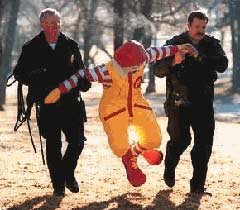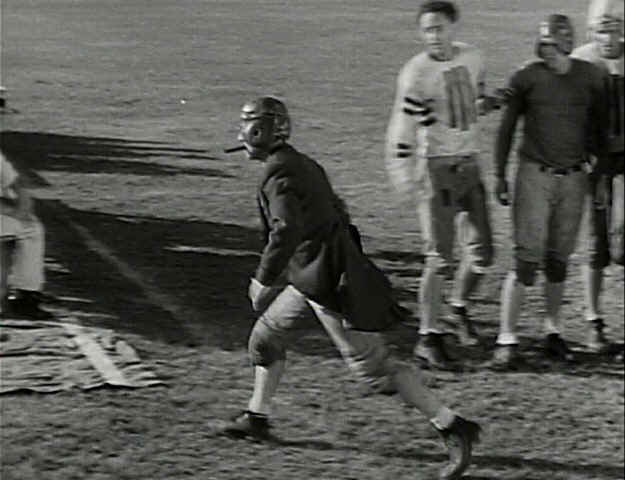IT'S NOT ROCKET SCIENCE!!
Sweet common sense article that was on Trusted MD!!
Makes a great review of all the stuff we have learned but have not put into play thanks to all the fun in the summertime!!
Common Sense Tips for Effective Weight Loss
Featured in: Nutrition & Life
Weight loss doesn't have to be the complicated ordeal that most fad diets and weight loss programs make it out to be.
With all the various weight loss products and programs that exist today, you’d think that weight loss is a very complex and difficult thing to accomplish. Fortunately, with the right perspective, it’s not complicated at all.
For most people, not understanding the basic principles of a healthy lifestyle is what makes weight loss seem so elusive.
The following are 5 common sense tips to help you achieve your weight loss goals.
1. Avoid Sugar and Refined Carbohydrates
The typical modern diet consists almost entirely of processed foods. Many of these foods are high in sugar and refined carbohydrates which are two very common causes of weight gain. This often causes blood sugar levels to increase rapidly, and in turn, promote the storage of body fat. For many people, eliminating or severely restricting processed foods from their diet is all that’s necessary for effective weight loss. I unintentionally lost 30 pounds, which I didn’t even realize I needed to lose, after eliminating processed foods from my diet for health reasons.
2. Eat Real Food
By real food I mean the natural whole foods that we evolved on. This includes meat, fish, fruit, and vegetables. It does not include modern foods such as bread, cereal, and pasta. Even if you choose whole grain varieties of these foods, they still contain a considerable amount of carbohydrates despite not having as much sugar. As such, they can still easily promote weight gain. Focusing mainly on meat, fish, fruit, and vegetables will simplify your diet by automatically ruling out nearly all foods that commonly cause weight gain.
The high nutritional content of whole foods will also help to satisfy your appetite and will reduce the chances of you overeating. If you don’t believe this, try to remember the last time you felt stuffed from eating too much processed food versus feeling stuffed from eating too much fruit and vegetables.
Most importantly, eating natural whole foods will also promote optimal health.
3. Minimize Stress
In addition to the popularity of processed foods, most people are leading very busy lives and are exposed to significant amounts of stress on a daily basis. This can be a significant obstacle for weight loss. Frequent stress causes a chronic elevation of the hormone cortisol, which in turn, can promote increased insulin production.
One of insulin’s primary responsibilities is to store body fat, and as such, stress is something that people looking to loose weight should be especially aware of.
A few simple ways to relieve stress include eliminating as many sources of unnecessary stress as possible, reframing your negative thoughts into positive ones, using deep breathing exercises, enjoying nature, and enjoying slow and relaxing music. Mild forms of exercise such as tai chi, qigong, and stretching can be very relaxing as well.
4. Do Interval Training
Even though diet is by far the most important aspect of weight loss, most people attempt to overcompensate for poor eating habits by exercising excessively. This is made evident by the people who do long bouts of intensive cardio nearly every day and fail to lose weight. This is a tremendous burden to the body, and like mental stress, can interfere with weight loss. This type of repetitive physical burden can also cause adrenal fatigue and promote poor health.
A much better way to exercise for weight loss is high intensity interval training which consists of a number of short but intense repetitions of activity such as sprinting or cycling. One of the best aspects of high intensity interval training is that it can cause your body to continue burning calories at an elevated rate for up to 48 hours after your workout.
5. Make it a Lifestyle
A common mistake that people make with their approach to weight loss is believing that they can make temporary changes to lose weight and then return to their normal habits. It doesn’t work this way. A healthy lifestyle will help you lose weight, but you’ll only keep the weight off for as long as you’re continuing to follow the lifestyle. This is why many fad diets don’t work long term. In many cases, they’re simply to impractical to follow for the rest of your life.
As you make changes to your lifestyle to promote weight loss, consider if these are changes that you’re willing to stick with for the rest of your life. If they’re not, it’s likely that you’ll regain any weight that you lose as a result of implementing them.
Health Comes First
The tips outlined above aren’t meant to be a quick fix specifically intended for weight loss. They’re merely common sense principles of good health. Weight loss is a pointless endeavor if it ends up detracting from your health and compromising your quality of life which is exactly what can happen if you approach it the wrong way. As such, the best way to lose weight is the healthy way which is by following the lifelong principles of a healthy lifestyle.














